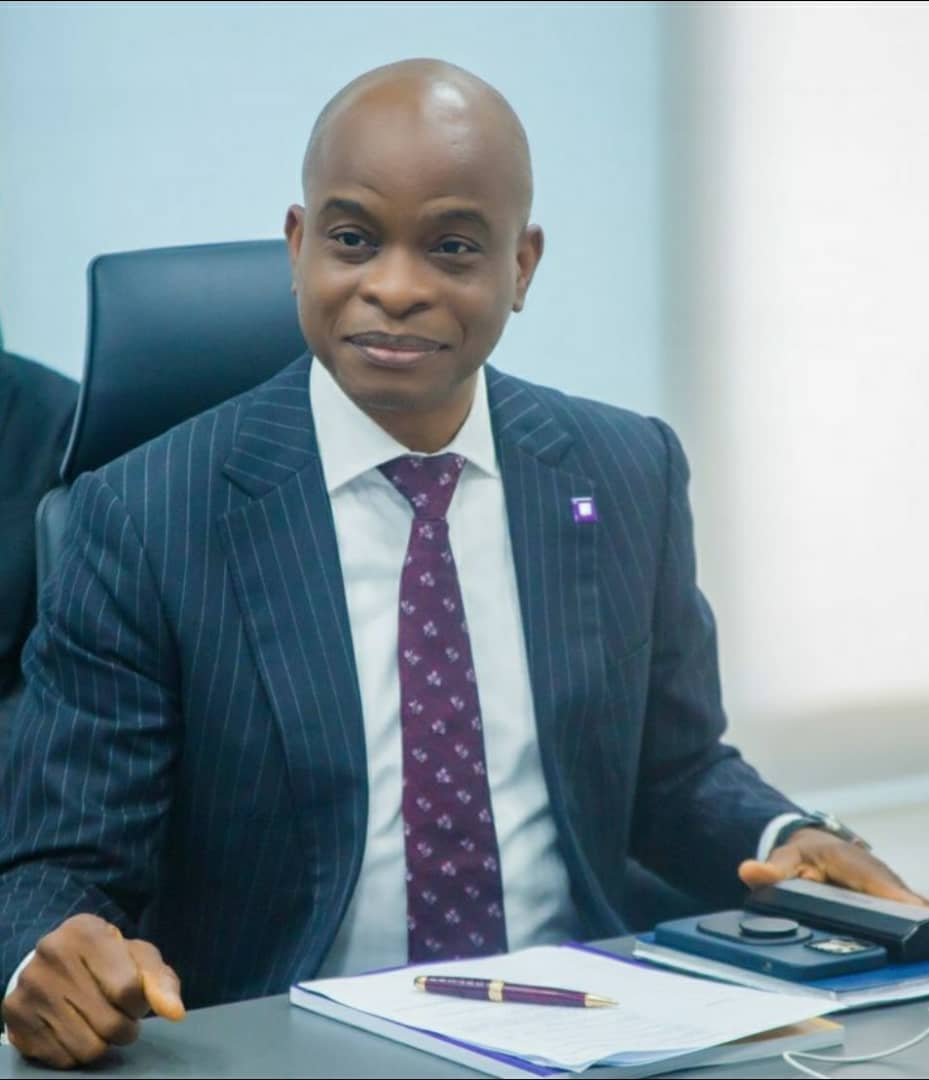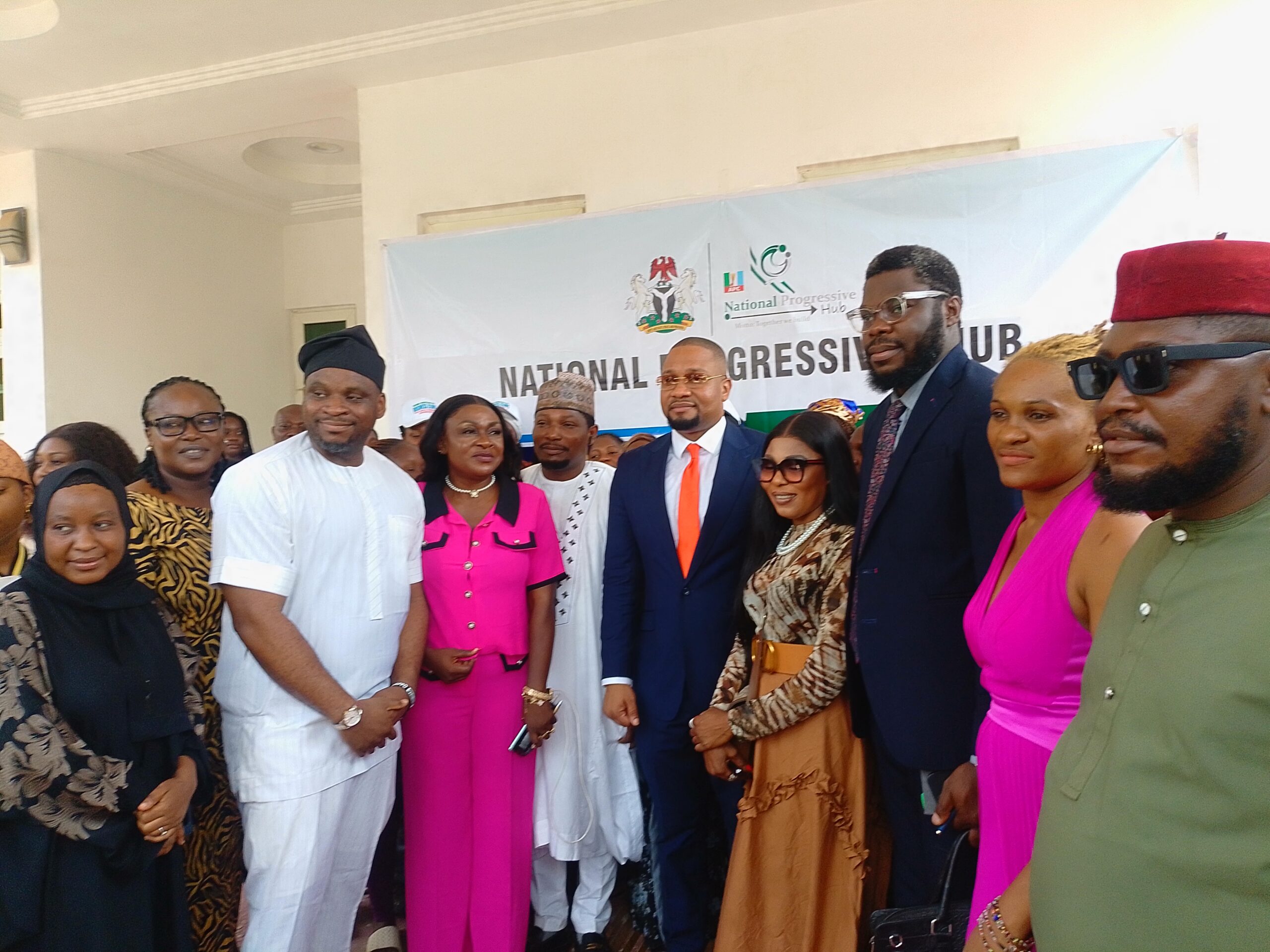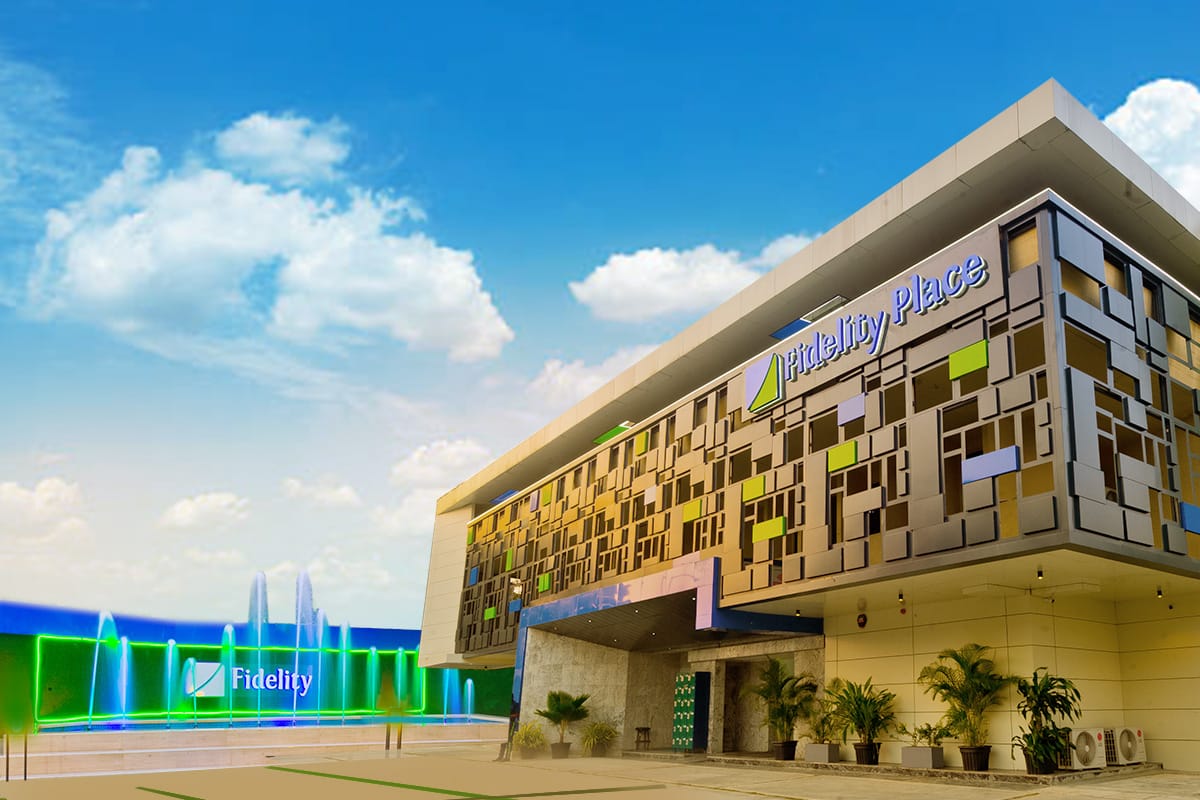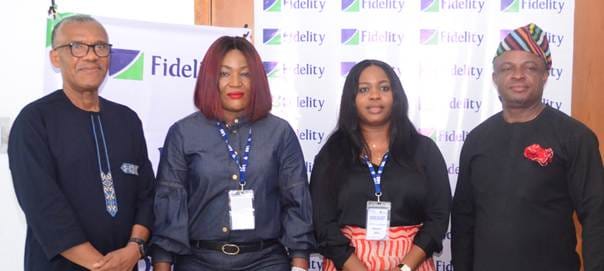Business
At Polaris Bank, we are positioning for digital leadership and market dominance, says CEO, Adekunle Sonola

Leading digital financial institution, Polaris Bank has assured its customers, financial sector stakeholders, and regulators that the Bank passed its road to recovery years back.

Chief Executive Officer (CEO), of the financial institution, Adekunle Sonola, stated this in a recent interview, with PROSHAREs team of analysts noting that the Bank is currently on the growth path leading to market dominance.

According to him, careful rethinking and re-strategizing corporate plans creates the bedrock of competitive burst and business sustainability, both attributes that Polaris Bank has focused on in the last few years, working with professional bodies such as PwC, Ernst & Young (E&Y), and KPMG across several corporate verticals. “The bank has travelled past the recovery road years back; it is currently on the growth road leading to market dominance.
“Adequate capitalization is a key measure of financial health, providing comfort to depositors and affording balance sheet and business growth. The bank is presently adequately capitalized, operating well above the 10% minimum requirement for National Banks. Nonetheless, we are concluding arrangements to inject Tier II capital into the Balance Sheet to support our growth aspirations.
Our shareholders are ready and willing to inject Tier I capital into the books. Having instituted best-in-class risk management practices, and maintaining adequate capitalization to support our growth objectives is not one of the bank’s immediate challenges and will not be in the foreseeable future.
The new owners are committed to providing necessary support towards building a strong and resilient financial position to underwrite transactional activities of the Bank for sustainable value creation,” Sonola assured.
Confirming that the Bank now operates a two-prong ideology of controlling the funding cost and growing earning assets at economic pricing, the Polaris Bank boss noted that earning asset growth is something the Bank is driving at from both the investment and risk asset sides of the business.
“The Bank has consistently been growing its asset base year-on-year (Y-o-Y). The Bank’s recently developed strategic plan will guide the Bank to a position of being a major challenger of Tier 1 banks and be the leader among Tier II banks along all the key performance parameters.
Furthermore, the bank’s focus is to be one of the most efficient deposit money institutions in the industry, delivering superior value to its stakeholders, our competition is not of size, but value creation.
“We have revamped our go-to-market structure, broadening our customer base, fine-tuning our product, and supporting service offerings, strengthening personnel sales capacities, and improving our loan onboarding processes. We are very confident our Net interest income and margin will witness considerable growth as our strategies mature.”
Clarifying that cost control is a critical part of the Bank’s tactical and strategic roadmap, Polaris Bank Managing Director said its short-term tactics come from its longer-term strategies, adding that at the tactical level, the Bank is strengthening digital deliveries, and upgrading the capabilities and offerings on Digital Bank, Vulte, for an even more intensive and intuitive experience across customer journeys.
Polaris Bank has also improved its digital play, as reflected in the improvement of technological interfaces that feed into the customer’s journey expectations and experiences.
“We intend to build a dominant digitally led retail franchise and continue to reshape the bank’s business processes and support technology to continuously improve enterprise agility. The key thing is to drive top-notch processes and build agility in customer responsiveness.
“The VULTE product is just one of our service offerings. Indeed, we are creating a digital service reality that is customer service-focused. The technology driving this will scale digital service delivery to enhance our customers’ product or service experiences as we front-load features that fit into their expectations and future possible journey outcomes. As financial service platforms get better and continue to be an enabler, a part of the fabric of our modern economy, we will be an integral part of the way people carry out their businesses and we will make their digital journeys an integrated friendly experience. One cannot talk too much about this, but the tea leaves are pointing to a fresh pathway to consumer banking satisfaction.”
Other areas of positive growth in the Bank include the creation of a more powerful customer service experience via improved staff productivity with the best of Polaris Bank staffers driving the process having gone through upskilling and retraining programmes. This ensures we are driving a productivity-sensitive framework that marries staff effort with measurable business contributions.
“We have zeroed in on offering superior customer experience as a competitive tool. The new world of competitiveness requires that corporations are agile and flexible, we are building this into the bank’s operational DNA. Our customer journey experiences have been deconstructed across demographics and the service propositions will soon grace banking halls in the next eighteen months at the latest.
“We plan for a stronger balance sheet, with higher loan quality, greater liquidity, larger capital, and resilience to absorb economic shocks. Our loan asset quality has improved significantly, thereby improving liquidity, earnings, and the bank’s capital. We are primed to improve our cost-to-income ratio (CIR), Capital Adequacy Ratio (CAR), and Cost-of-Risk ratio (CoR). In the recent past, we saw bumps in the risk area with CoR higher than we would like, but more recently risk quality has improved leading to lower CoR.”
With a focus on customer-centricity, risk management, cost optimization, and technological advancements, Polaris Bank is seen as positioning itself as a major player in the industry, offering superior customer experiences and driving financial performance.
The Bank has been decorated as Nigeria’s Digital Bank of the Year in two successive years; it aims to position itself as a dominant digitally-led retail franchise, delivering superior value to stakeholders.

Business
APC support group trains over 50 women entrepreneurs

The National Progressives Hub (NPH), a support group for the ruling All Progressives Congress (APC), has trained over 50 women entrepreneurs running Micro, Small, and Medium-sized Enterprises (MSMEs) to enhance their financial inclusion and business growth.

The women, selected from NPH and other support groups, participated in the training held in the Asokoro area of Abuja on Tuesday.

The National Coordinator of NPH, Hon. Bukie Okangbe, stated that the event was part of activities to celebrate the 2025 International Women’s Day.
“It is a business clinic. We brought in experts and trainers to conduct the training, including facilitators from the Small and Medium Enterprises Development Agency of Nigeria (SMEDAN). This initiative is designed for APC women and every party member to celebrate Women’s Month. We also want women to be aware of government policies,” she emphasized.
Kingsley Ndimele, a Business Consultant and Financial Economist, noted that while businesses in Nigeria are performing fairly well, there is significant room for improvement, particularly in addressing policy gaps, access to information, and knowledge acquisition.
“I am here to train small business owners on how to grow and scale their enterprises. Although businesses in Nigeria are making progress, challenges persist due to policies, government intervention, and the business owners themselves.
“The average Nigerian entrepreneur has the potential to perform better if key issues such as policy framework, infrastructure, and knowledge gaps are addressed. Growing a business requires a certain level of knowledge capacity. If you lack that capacity, no matter how much funding you receive, you may not succeed,” he explained.
He also highlighted the issue of funding as a shared responsibility between the government and entrepreneurs.
“The Nigerian government has been supporting MSMEs through funding and capacity-building initiatives. However, the question remains: Are Nigerian entrepreneurs ready to maximize these opportunities? Do they meet the eligibility criteria?” he asked.
A representative of the Director-General of SMEDAN, Peter Adeshina, stated that the training aimed to educate small business owners on structuring their enterprises to access available opportunities.
“SMEs are critical to economic prosperity and growth, and our role is to support them. A business clinic is like a medical clinic—when you visit, you receive treatment, feel revitalized, and can then expand and succeed.
“Our objective here is to provide guidance on structuring businesses for growth. Currently, finance in Nigeria is costly due to high interest rates. However, there are measures SMEs can take to secure affordable loans and grants.
“For instance, formalizing a business—something as simple as registering it—can determine whether one can access opportunities or not. Business owners should also open dedicated business accounts to establish a credit history, making them more trustworthy to investors,” he advised.
He also expressed optimism that the training would enhance SMEs’ operations.
“At the end of this event, we expect SMEs to function more effectively. With the information provided, they will be able to restructure their businesses, abandon ineffective practices, and embrace growth.
“Accessing SMEDAN opportunities requires registration with the agency. Fortunately, SMEDAN has state offices nationwide where business owners can seek support. We anticipate that, after this exercise, more entrepreneurs will be better positioned for success,” he added.
Also, the Senior Special Adviser to the Minister of State for Industry, Trade, and Investment, Adeshile Deji, encouraged the trainees to engage in continuous capacity-building programs from relevant agencies to enhance their skills and business operations.

Business
Kano residents benefit from Fidelity Food Bank initiative

Over 1,500 residents have benefited from a Fidelity Food Bank outreach in Kabuga community, Dala Local Government Area of Kano state.

The Corporate Social Responsibility (CSR) initiative, executed in partnership with Misnoory Foundation, saw staff of the bank distribute essential food items to support people during the holy month of Ramadan.

Commenting on the distribution event, Divisional Head, Brands and Communications, Fidelity Bank Plc, Dr Meksley Nwagboh, emphasized the bank’s dedication to supporting its host communities through impactful projects.
“Social responsibility is at the heart of who we are as a bank. Our Fidelity Food Bank initiative is one of the way we drive social welfare in our host communities. The initiative was launched to support the vulnerable and alleviate the impact of hunger in the society as part of our contribution to Sustainable Development Goal 2, which aims to achieve zero hunger.
“Consequently, we have distributed more than 150,000 food packs at outreach events like this across the country since April 2023 when we launched the initiative. Our outreach in Kabuga is designed to support women, widows, children and the community with food items for the Ramadan season.”
On her part, the Founder, Misnoory Foundation, Maryam Isa Inuwa stated that, “The commitment of the foundation towards poverty alleviation and various humanitarian support to society’s most vulnerable members perfectly aligns with the Fidelity Bank initiative.
“Fidelity Bank is one of the major sponsors of our humanitarian outreaches to the needy in the society. The foundation is delighted to count on the bank as a long-standing partner.
“We seek to touch the lives of many people in need through our various humanitarian efforts across different communities and today, it is the turn of Kabuga community to benefit from the Fidelity Food Bank program”.
Ranked among the best banks in Nigeria, Fidelity Bank Plc is a full-fledged Commercial Deposit Money Bank serving over 8.5 million customers through digital banking channels, its 255 business offices in Nigeria and United Kingdom subsidiary, FidBank UK Limited.
The Bank is the recipient of multiple local and international Awards, including the Export Finance Bank of the Year at the 2023 BusinessDay Awards; the Banks and Other Financial Institutions (BAFI) Awards; Best Payment Solution Provider Nigeria 2023; and Best SME Bank Nigeria 2022 by the Global Banking and Finance Awards.
It was also recognized as the Best Bank for SMEs in Nigeria by the Euromoney Awards for Excellence 2023 and the Best Domestic Private Bank in Nigeria by the Euromoney Global Private Banking Awards 2023.

Business
Fidelity Bank equips entrepreneurs for global trade success with EMP 18

Tier-one lender, Fidelity Bank Plc, has once again highlighted the importance of promoting non-oil exports as it recently hosted the 18th edition of its dedicated capacity development training tagged Export Management Programme (EMP 18). The programme, which was held recently in Lagos provided a platform for entrepreneurs interested in exploring global trade opportunities to scale and acquire relevant expertise.

Hosted in partnership with the Lagos Business School (LBS), the 5-day intensive program focused on equipping entrepreneurs with the skills and knowledge needed to explore international market opportunities and strengthen their capacity to thrive in the export sector.

“At Fidelity Bank, our strategy to enhance non-oil exports is guided by the significant opportunities it offers to our customers and the national economy. This is why we offer a comprehensive suite of financial, advisory, and market-access solutions for businesses aiming to engage in international trade.
“Our market-access initiative, EMP, launched in 2016, has trained over 1,600 entrepreneurs. Today, we completed the 18th cohort with high-caliber participants and a 150% oversubscription. This indicates a promising future for Nigeria’s non-oil exports,” explained Isaiah Ndukwe, Divisional Head of Export and Agriculture at Fidelity Bank Plc.
Facilitated by key industry experts in the exports space, EMP 18 took participants through several sessions focused on critical areas in global trade such as Export Finance Instruments, Export Documentation, Accessibility of Export Markets, amongst others.
A key feature of the training was a facility tour of one of Nigeria’s busiest Export Processing Terminals (EPT) located in Ikorodu, Lagos state. The full-day visit, which was anchored by officials of the Nigerian Customs Service (NCS), gave participants a first-hand feel of the necessary procedure and requirements for securing regulatory approval for exporting from Nigeria.
One of the program participants, Patrick Ulayi Awu-Patricks, Managing Director/Chief Executive Officer, Alliance & Frontier Limited, commended Fidelity Bank for its leadership in deploying capacity-building initiatives in the non-oil exports sector. In a discussion with journalists, he stated that EMP 18 provided invaluable exposure to the opportunities in the export business noting that, “There are lots of non-oil exports opportunities and entrepreneurs must be able to identify and capitalize on these to be able to play effectively in the international trade space. This course has given me insights into the power of data which is essential for strategic decision-making.”
Ranked among the best banks in Nigeria, Fidelity Bank Plc is a full-fledged Commercial Deposit Money Bank serving over 8.5 million customers through digital banking channels, its 255 business offices in Nigeria and United Kingdom subsidiary, FidBank UK Limited.
The Bank is the recipient of multiple local and international Awards, including the Export Finance Bank of the Year at the 2023 BusinessDay Awards; the Banks and Other Financial Institutions (BAFI) Awards; Best Payment Solution Provider Nigeria 2023; and Best SME Bank Nigeria 2022 by the Global Banking and Finance Awards. It was also recognized as the Best Bank for SMEs in Nigeria by the Euromoney Awards for Excellence 2023 and the Best Domestic Private Bank in Nigeria by the Euromoney Global Private Banking Awards 2023.

-

 News1 week ago
News1 week agoPlateau gov’t expresses concern over violence in Shendam LGA, calls for calm
-

 Politics1 week ago
Politics1 week agoOpposition leaders announce coalition to challenge Tinubu in 2027
-

 Opinion1 week ago
Opinion1 week agoSule Lamido, PDP, and the politics of defection.
-

 Foreign6 days ago
Foreign6 days agoHouthis declare Ben-Gurion Airport ‘no longer safe’ after renewed Gaza fighting
-

 Politics1 week ago
Politics1 week agoYahaya Bello deceptively arranging recall of Senator Natasha, desperate to replace her – Constituents
-

 Politics1 week ago
Politics1 week agoAtiku, El-rufai, Obi condemn Tinubu’s suspension of Rivers Governor, demand reversal
-

 News7 days ago
News7 days agoWhy Christ Embassy’s Pastor Chris holds Abuja mega crusade – Fisho
-

 News6 days ago
News6 days agoUmeh denies receiving $10,000 with other 42 Senators to support state of emergency in Rivers









